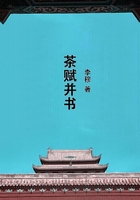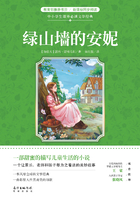Again, it seems strange that Mr. Montagu should not perceive that, while attempting to vindicate Bacon's reputation, he is really casting on it the foulest of all aspersions. He imputes to his idol a degree of meanness and depravity more loathsome than judicial corruption itself. A corrupt judge may have many good qualities. But a man who, to please a powerful patron, solemnly declares himself guilty of corruption when he knows himself to be innocent, must be a monster of servility and impudence. Bacon was, to say nothing of his highest claims to respect, a gentleman, a nobleman, a scholar, a statesman, a man of the first consideration in society, a man far advanced in years. Is it possible to believe that such a man would, to gratify any human being, irreparably ruin his own character by his own act? Imagine a grey-headed judge, full of years and honours, owning with tears, with pathetic assurances of his penitence and of his sincerity, that he has been guilty of shameful malpractices, repeatedly asseverating the truth of his confession, subscribing it with his own hand, submitting to conviction, receiving a humiliating sentence and acknowledging its justice, and all this when he has it in his power to show that his conduct has been irreproachable! The thing is incredible. But if we admit it to be true, what must we think of such a man, if indeed he deserves the name of man, who thinks anything that kings and minions can bestow more precious than honour, or anything that they can inflict more terrible than infamy?
Of this most disgraceful imputation we fully acquit Bacon. He had no defence; and Mr. Montagu's affectionate attempt to make a defence for him has altogether failed.
The grounds on which Mr. Montagu rests the case are two: the first, that the taking of presents was usual, and, what he seems to consider as the same thing, not discreditable; the second, that these presents were not taken as bribes.
Mr Montagu brings forward many facts in support of his first proposition. He is not content with showing that many English judges formerly received gifts from suitors, but collects similar instances from foreign nations and ancient times. He goes back to the commonwealths of Greece, and attempts to press into his service a line of Homer and a sentence of Plutarch, which, we fear, will hardly serve his turn. The gold of which Homer speaks was not intended to fee the judges, but was paid into court for the benefit of the successful litigant; and the gratuities which Pericles, as Plutarch states, distributed among the members of the Athenian tribunals, were legal wages paid out of the public revenue. We can supply Mr. Montagu with passages much more in point. Hesiod, who, like poor Aubrey, had a "killing decree " made against him in the Chancery of Ascra, forgot decorum so far that he ventured to designate the learned persons who presided in that court, as Basileas dorophagous. Plutarch and Diodorus have handed down to the latest ages the respectable name of Anytus, the son of Anthemion, the first defendant who, eluding all the safeguards which the ingenuity of Solon could devise, succeeded in corrupting a bench of Athenian judges. We are indeed so far from grudging Mr. Montagu the aid of Greece, that we will give him Rome into the bargain. We acknowledge that the honourable senators who tried Verres received presents which were worth more than the fee-simple of York House and Gorhambury together, and that the no less honourable senators and knights who professed to believe in the alibi of Clodius obtained marks still more extraordinary of the esteem and gratitude of the defendant. In short, we are ready to admit that, before Bacon's time, and in Bacon's time, judges were in the habit of receiving gifts from suitors.
But is this a defence? We think not. The robberies of Cacus and Barabbas are no apology for those of Turpin. The conduct of the two men of Belial who swore away the life of Naboth has never been cited as an excuse for the perjuries of Oates and Dangerfield. Mr. Montagu has confounded two things which it is necessary carefully to distinguish from each other, if we wish to form a correct judgment of the characters of men of other countries and other times. That an immoral action is in a particular society, generally considered as innocent, is a good plea for an individual who, being one of that society, and having adopted the notions which prevail among his neighbours, commits that action. But the circumstance that a great many people are in the habit of committing immoral actions is no plea at all. We should think it unjust to call St. Louis a wicked man, because in an age in which toleration was generally regarded as a sin, he persecuted heretics. We should think it unjust to call Cowper's friend, John Newton, a hypocrite and monster, because at a time when the slave-trade was commonly considered by the most respectable people as an innocent and beneficial traffic, he went, largely provided with hymn-books and handcuffs, on a Guinea voyage. But the circumstance that there are twenty thousand thieves in London is no excuse for a fellow who is caught breaking into a shop. No man is to be blamed for not making discoveries in morality, for not finding out that something which everybody else thinks to be good is really bad. But, if a man does that which he and all around him know to be bad, it is no excuse for him that many others have done the same. We should be ashamed of spending so much time in pointing out so clear a distinction, but that Mr. Montagu seems altogether to overlook it.















